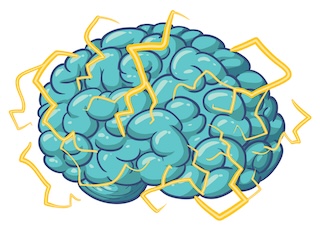February 4, 2025
by Patricia Tomasi

A new study published in PNAS looked at how expert navigators deploy rational complexity–based decision precaching for large-scale real-world planning. “Our study is about the intricate planning processes of London taxi drivers, who are renowned for their exceptional knowledge of the city's layout,” study author Daniel C. McNamee told us. “We aimed to uncover how these expert navigators manage the complex task of route planning across more than 26,000 streets in London.”
[More]
January 31, 2025
by Elizabeth Pratt

More than 18 thousand structures were destroyed and 29 people killed in the Eaton and Palisades fires in southern California.
Whilst the fires burned for 24 days, the recovery efforts are just beginning and experts say the mental health impacts could be long lasting.
[More]
January 31, 2025
by Elizabeth Pratt

People aged 50 and older find with poor or fair health are twice as likely to report not having any close friends.
Data from the University of Michigan National Poll on Healthy Aging found that friends can play a key role for people over the age of 50, but that those with mental or physical health problems can experience challenges in this area.
[More]
January 30, 2025
by Elizabeth Pratt

Those living with multiple sclerosis who are pregnant have a greater chance of experiencing mental illness during pregnancy and in the first few years following birth.
Research published in Neurology found that pregnant people with MS had a 26% increased risk of mental illness during pregnancy when compared with pregnant people without MS and a 33% increased risk of mental illness after birth.
[More]
January 29, 2025
by Elizabeth Pratt

Did your parents have a favorite child?
Research published in the Psychological Bulletin suggests they may have and the factors contributing to favoritism may surprise you.
[More]
January 28, 2025
by Patricia Tomasi

A new study published in the Lancet looked at associations between childhood trauma and childhood psychiatric disorders in Brazil. “This study looks at the impact of childhood trauma exposure on the mental health of adolescents at ages 15 and 18 in a Brazilian birth cohort,” study author Megan Bailey told us. Bailey is an ESRC-Funded PhD Researcher in the Department of Psychology at the University of Bath.
[More]
January 21, 2025
by Patricia Tomasi

A new study published in the Journal of Nature aimed to understand the neural code of stress to control anhedonia. “The goal of the study was to understand what drives reduced reward-seeking in individuals who are susceptible to traumatic stress,” study author Mazen A. Kheirbek told us. “We were hoping to identify patterns of activity in the brains of mice that may be related to this process of anhedonia, and patterns that are associated with resiliency to developing anhedonia.”
[More]
January 14, 2025
by Patricia Tomasi

A new study published in the Journal of Child Psychology and Psychiatry looked at the contribution of childhood lead exposure to psychopathology in the US population over the past 75 years. “We set out to determine the toll that leaded gasoline took on the US population’s mental health over the past century,” Dr. Aaron Reuben told us. “We knew it would be higher than anyone previously understood.”
[More]
January 7, 2025
by Patricia Tomasi

A new study published in the Journal of the American Medical Directors Association looked at a longitudinal treatment effect analysis of antipsychotics on the behavior of residents in long-term care. “Our study was focused on the use of advanced statistical methods to evaluate the effects of antipsychotic use among nursing home residents who do not have existing conditions associated with psychosis,” study author, Dr. John Hirdes told us. Dr. Hirdes is a professor in the School of Public Health Sciences. “These drugs are often use ‘off label’ to manage behaviours in persons with dementia. We wanted to determine whether these drugs would be effective in managing behaviour problems in long-term care.”
[More]
December 31, 2024
by Patricia Tomasi

A new study published in Scandinavian Journal of Trauma, Resuscitation and Emergency Medicine assessed the psychobiological demands of high-fidelity training in pre-hospital emergency medicine. “Individuals who provide emergency medical services mount physiological responses including activation of the nervous and endocrine systems,” study author Mark Wetherell told us. “These responses are highly adaptive and provide the energy resources to deal with the situation, however, frequent and sustained responding, with little opportunity for recovery, causes wear and tear on the body and this can lead to increased risk of stress-related illness.”
[More]